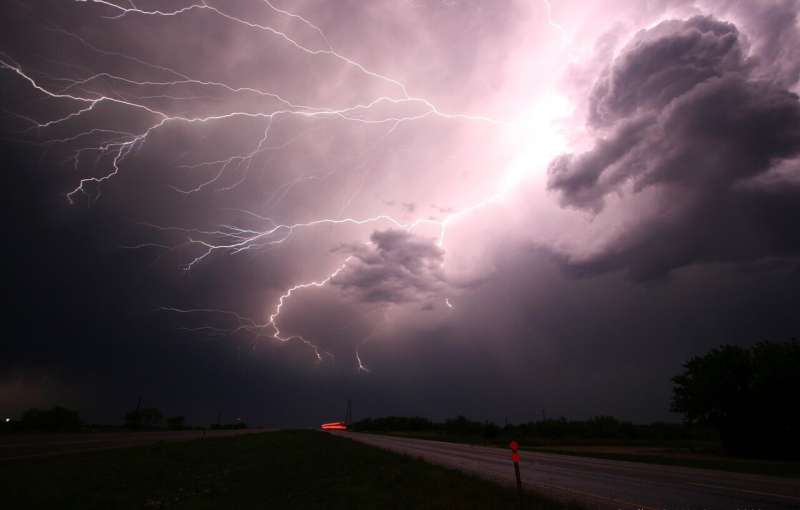Credit: CC0 Public Domain
Nearly half of global youth surveyed (45%) say climate anxiety and distress is affecting their daily lives and functioning—according to results from the largest scientific study into climate anxiety in children and young people, according to recent research.
The inaugural study, based on surveys with 10,000 children and young people (16-25) across 10 countries, found 75% of young respondents believe "the future is frightening"—jumping to 81% of youth surveyed in Portugal and 92% in the Philippines.
It found, for the first time, that climate distress and anxiety is significantly related to perceived government inaction and associated feelings of betrayal. 58% of children and young people surveyed said governments were "betraying me and/or future generations," while 64% said their governments are not doing enough to avoid a climate catastrophe.
The study finds widespread psychological distress among children and young people globally and warns "such high levels of distress, functional impact and feelings of betrayal will negatively affect the mental health of children and young people." Experts warn that because continued government inaction on climate change is psychologically damaging, it potentially amounts to a violation of international human rights law.
Caroline Hickman, from the University of Bath, Climate Psychology Alliance and co-lead author on the study says that "this study paints a horrific picture of widespread climate anxiety in our children and young people. It suggests for the first time that high levels of psychological distress in youth is linked to government inaction."
"Our children's anxiety is a completely rational reaction given the inadequate responses to climate change they are seeing from governments. Children and young people are now mobilizing around the world and taking governments to court; arguing that failure to act on climate change violates their human rights. This study makes an important contribution to these legal arguments, framing climate anxiety and distress as a 'moral injury'."
Co-lead, Dr. Liz Marks, from the University of Bath's Department of Psychology added that "this study shows us how many young people around the world feel betrayed by those who should be protecting them. Despite this, governments at COP26 failed to take the bold and decisive action required to combat climate change. The decisions that those in power are making now will have the greatest impact upon the youngest and future generations, but they feel dismissed and ignored."
"We must consider the futures of young people, listen to their voices and place them at the center of decision making. By bringing together all generations, we can demand that that governments engage in the urgent action on climate change we so desperately need."
Mitzi Tan, 23-years-old, from the Philippines, said that "I grew up being afraid of drowning in my own bedroom. Society tells me that this anxiety is an irrational fear that needs to be overcome—one that meditation and healthy coping mechanisms will 'fix.' At its root, our climate anxiety comes from this deep-set feeling of betrayal because of government inaction. To truly address our growing climate anxiety, we need justice."
Beth Irving, a 19-year-old climate activist behind the Cardiff student climate strikes, says that "when I was 16... I went through phases of feeling utterly helpless in face of this immense problem, and then would launch myself into organizing protests or changing things within my school. To put so much energy into something and then see so little real life impact was exhausting; I had many occasions where I would hide myself away and think "None of this is enough". It's so damaging to put this problem on the shoulders of young people—hope needs to come instead from palpable structural action."
Additional findings from the study include:
- 59% of children and young people surveyed were very or extremely worried about climate change;
- More than half of respondents said they had felt afraid, sad, anxious, angry, powerless, helpless, and/or guilty;
- 55% of respondents felt they would have fewer opportunities than their parents;
- 65% felt governments were failing young people, while 61% said the way governments deal with climate change was not "protecting me, the planet and/or future generations";
- Almost half (48%) of those who said they talked with others about climate change felt ignored or dismissed.
- Young people surveyed from the Global South expressed more worry and a greater impact on functioning; while young people surveyed in Portugal (which has seen dramatic increases in wildfires since 2017) showed the highest level of worry amongst those from the Global North.
The study concludes that governments must respond to "protect the mental health of children and young people by engaging in ethical, collective, policy-based action against climate change."
The research was published in The Lancet Planetary Health.
More information: Caroline Hickman et al, Climate anxiety in children and young people and their beliefs about government responses to climate change: a global survey, The Lancet Planetary Health (2021). DOI: 10.1016/S2542-5196(21)00278-3
Provided by University of Bath
























